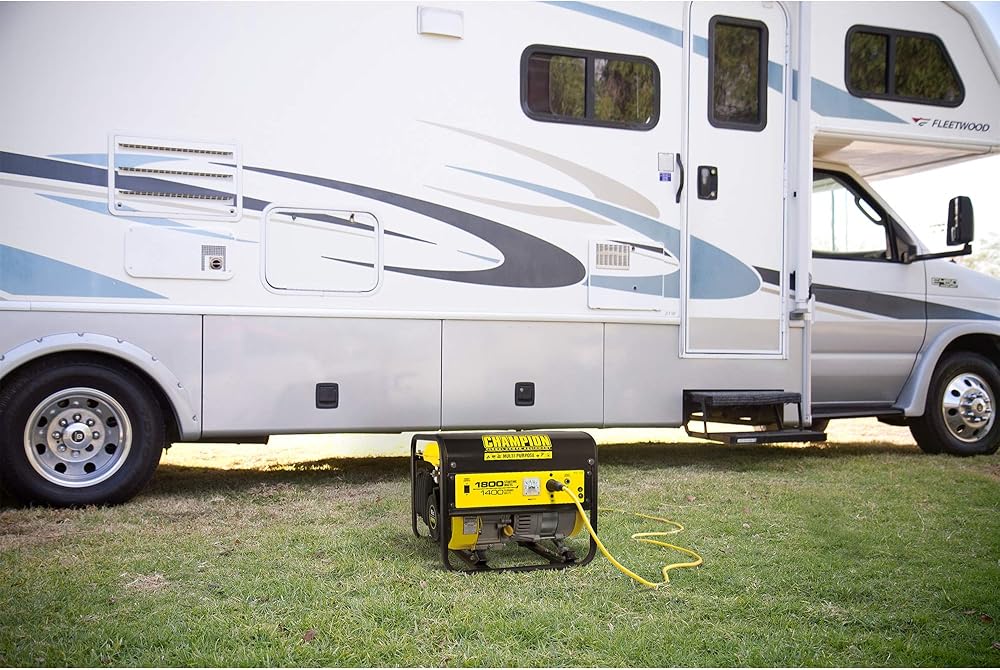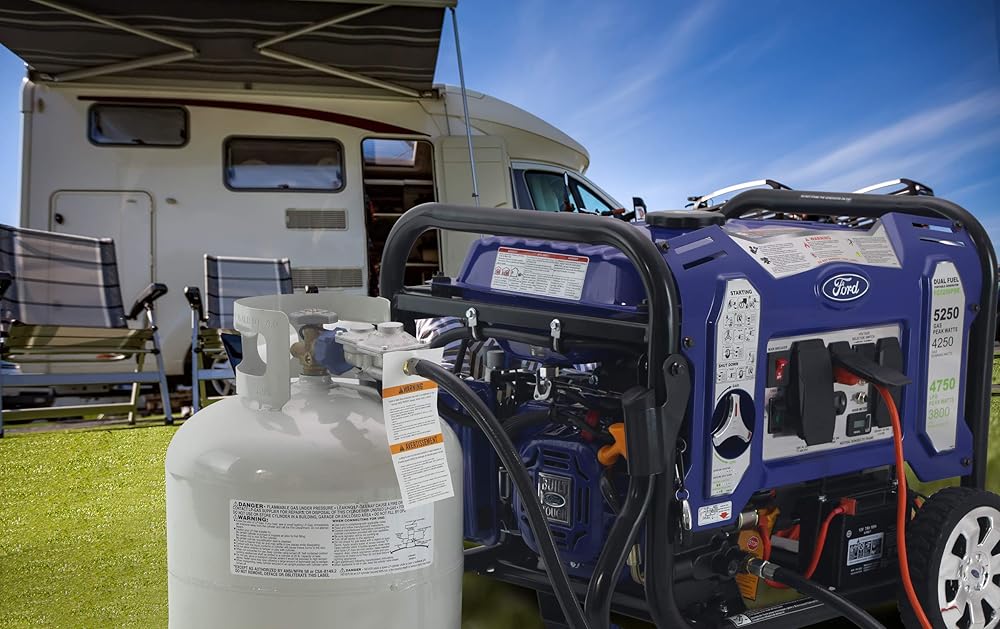Compared to other means available, a generator still remains to be one of the most convenient ways to charge an RV battery, especially when you’re on the go. Another plus with RV generators is that you can also rely on them as a power source for certain electrical appliances in the RV like TV, Furnace, water heater, air conditioning and oven. When you rely on a generator for such purposes then you can be sure that your RV batteries can last longer.
A thing to note is that you have to look for generators that are compatible with RV batteries because not all types of generators can be used for these batteries. When adopting generators as your charging device, there’s also the question of how long you need to run a generator to charge RV batteries. So if you’re one of those RVers who are looking for an answer, look no further because this article has all the information you have been looking for.
Factors Affecting How Long a Generator Takes To Charge RV Batteries
There’s no specific number of hours that you’ll have to wait for your RV battery to be fully charged when using a generator, even though the approximated time is 2 hours. Here are certain factors that determine the time needed for a full-charge:
Generator Type
RV generators are available in two options namely: built-in and portable generators. Portable RV generators are the best options for charging RV batteries if the RV doesn’t come with a pre-installed one. As convenient and versatile as they are, you’ll realize that you need to have them running longer compared to the built-ins in order to fully charge a battery.
A built-in generator on the other hand comes with a number of advantages apart from the fast charging aspect. One, you won’t need additional fuel because it’s connected to the fuel source used by the RV. They’re also convenient and ready to use, unlike the portable ones that you have to carry along and get several connections done before you can start charging.
Battery Size
RV batteries usually come in varying sizes giving you options to pick from depending on what your needs are. The common group sizes are groups 24, 27 and 31 and as the sizes go higher, so is the amp hours of the battery. The thing is, a group 24 battery will not take equal number of hours as that of group 31 to be fully-charged. So the bigger your battery is, the longer you’ll have to run the generator when charging.
The better part is that bigger sizes equally last longer with the charge, so you won’t have to recharge yours anytime sooner. Something to mention about battery sizes is that if you can’t find something that fits your specifications, you can customize by combining two or more batteries in order to achieve your size of choice.
State Of The Battery
As recommended, you don’t have to wait until your battery runs out of charge to have a re-charge even when in use. The same applies to when you have been storing the battery for quite some time and you want to improve its life before it self-discharges completely.
Now unless you have a specific percentage that you use to determine when it’s time to have the battery recharged, you’ll realize that the charging cycle will be different. That being said, always recharge stored batteries regularly so that you won’t have to spend longer hours charging it when it’s time to get your RV on the move.
Brand
This cuts across both batteries and the generator, especially if your RV doesn’t have an in-built one. Having RV generators doesn’t mean that everything you’ll come across when shopping will give you the ideal outcome, and that’s why you have to choose from the best. The truth is that most portable and convenient RV generators that we have today have low power outputs, but buying a substandard product will only make the situation unbearable.
Another reason why brand matters is that without quality production standards, you might end-up with a battery that charges quicker than the rest and also drains the power in equal measures. Therefore, when making a purchase, ensure that you only buy from trusted sources and brands so that you also get covered in case of unsatisfactory performance.
Parasitic Loads
I usually come across people charging batteries on one hand and on the other end, there are some appliances that they still keep running. When looking at the step to step guide on how to charge RV House Batteries, you’ll see that the first ideal thing to do is switch off the RV, and that applies to every other device relying on the battery as well.
This not only speeds up the process, but also ensures that charging is maximized. Therefore, always check to see to it that all the appliances and devices are turned off and unplugged before proceeding to connect the battery to the RV generator.
Important Things to Remember When Charging RV Batteries with a Generator
Generator Fuel
We all know that for a generator to work, there has to be fuel which is in turn converted to the power you need for your appliances. So, to avoid halting the charging process to have the generator refuelled, it’s ideal to first ensure that there is enough fuel before you begin charging.
This consistency also has some role that it plays in prolonging the battery life. Away from all that, you also have to be careful with the type of fuel you introduce to your RV generator. The logic that applies to using strictly distilled water on flooded batteries still applies to using the recommended fuel on your generator, when looking at performance and durability.
Battery Condition
If you’re the once-in-a-lifetime type of RVer, you sometimes have no option but to store the RV battery until the moment you’ll be ready to use it. Without regular checking, the battery can eventually discharge completely without your knowledge, making it difficult to recharge. Thus, as you get the battery out of storage, first check to see if it’s still in a good shape, otherwise you might be running fuel on a dead battery.
However, this shouldn’t be a problem when you use your battery regularly because that means that you also get the time to inspect it more often. You’ll also be at a better position if you follow the regular charging and other maintenance recommendations which help keep the battery in the perfect shape.
Conclusion
Using a generator to charge RV batteries may not be the fastest way available, but it still remains to be the most convenient means available. So, if your RV doesn’t come with a built-in one, here’s the time to get yourself a portable RV generator to help save the day when you run out of charge in the middle of nowhere. Moving forward to the ‘How Long Do I need To Run A Generator To Charge RV Batteries’ question, the answer is very simple; Keep the generator running until your battery is fully-charged.


